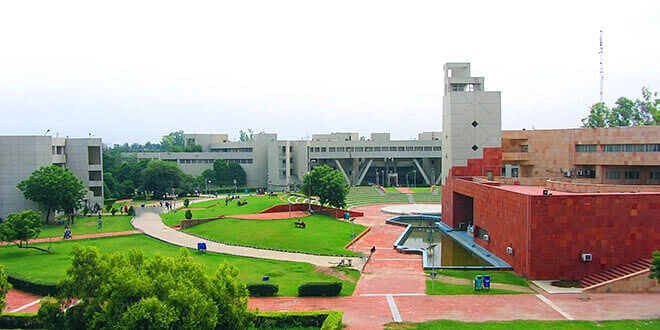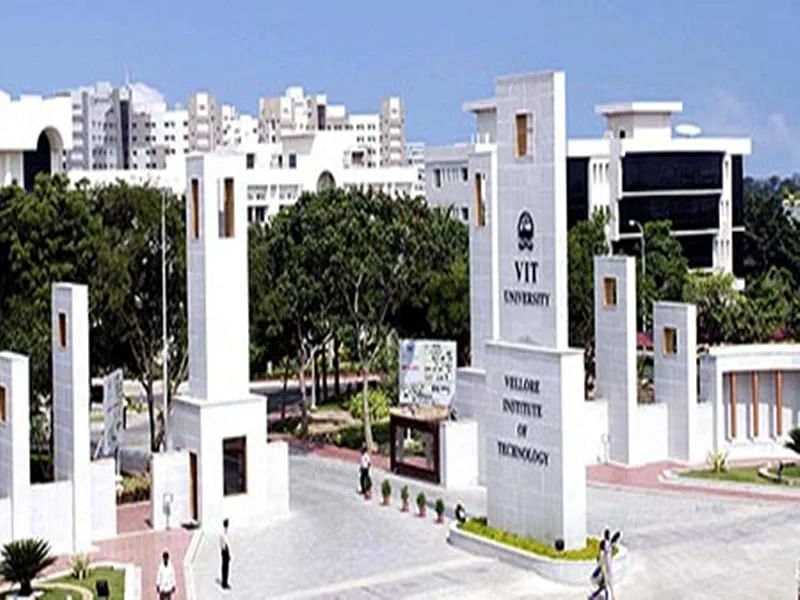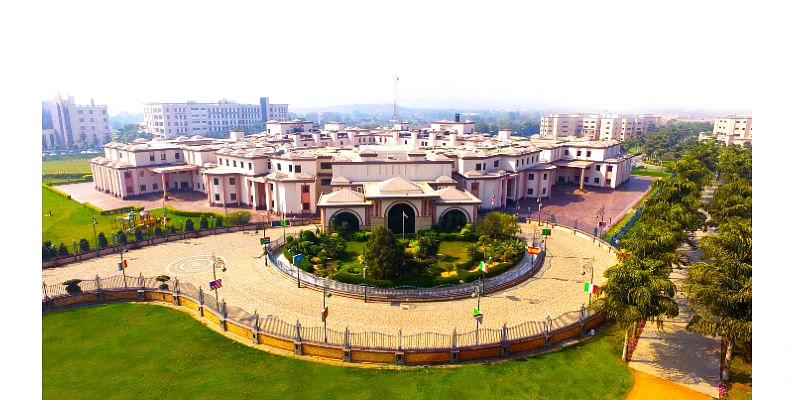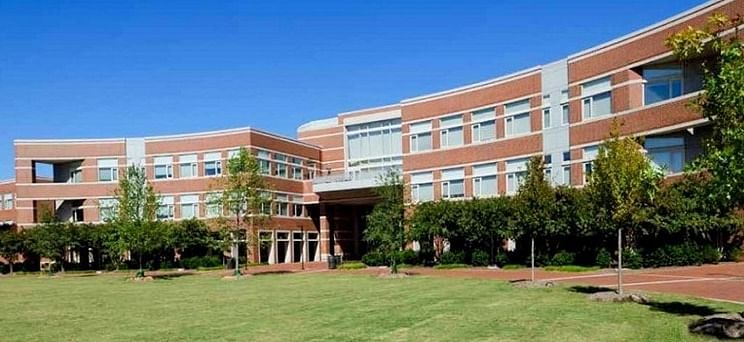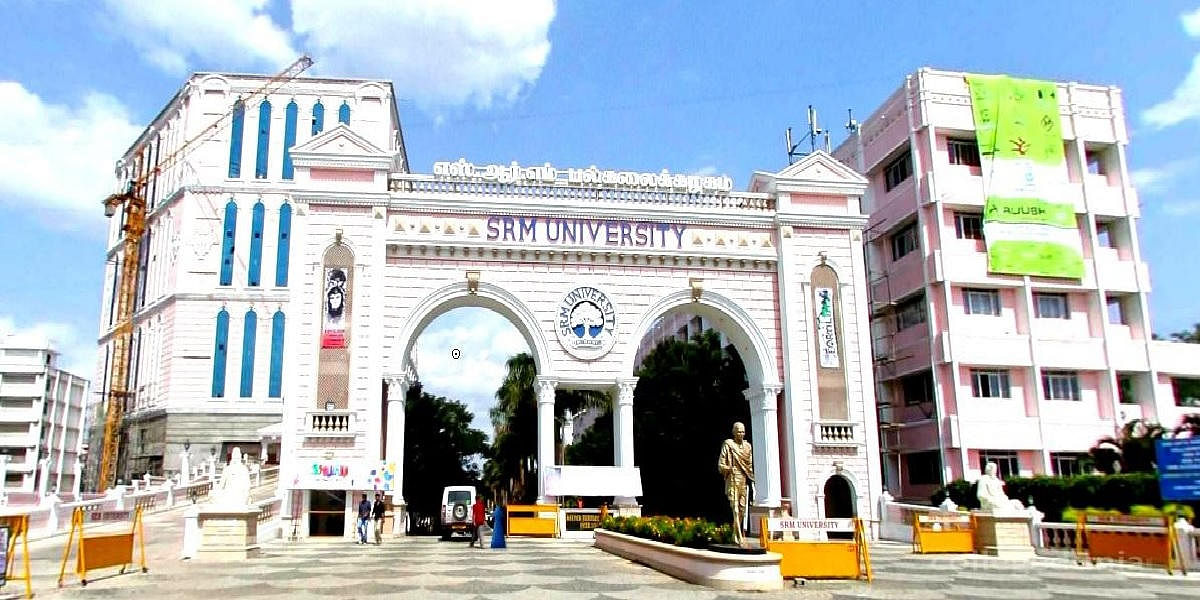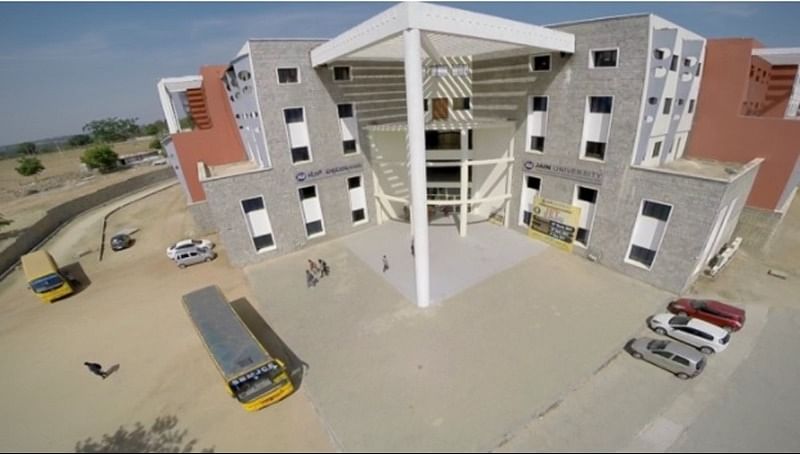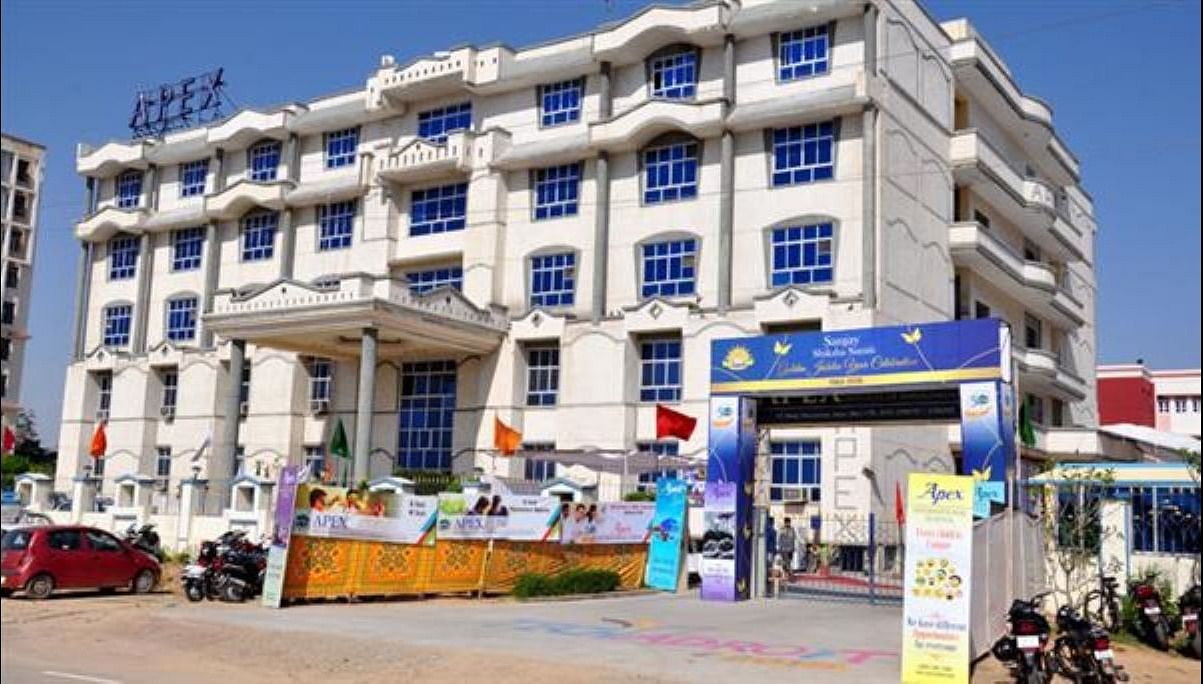B.Tech Software Engineering Syllabus and Subjects

The B.Tech Software Engineering syllabus is structured into eight semesters and deals with topics such as Software Development, Cybersecurity, Web Development, AI, Java, Data Analytics, and more. The B.Tech Software Engineering course curriculum spans four years and offers a combination of core subjects, elective offerings, practical sessions, internships, industrial visits, and more.
The core B Tech Software Engineering subjects focus on foundational and advanced concepts such as Programming, Data Structures, Object Oriented Programming, Computer Architecture, Operating Systems, and more. The elective subjects deal with topics such as Soft Computing, Cloud Computing, Big Data Analytics, Data Warehousing, and more.
The B.Tech Software Engineering program also emphasizes practical learning through lab sessions and projects. In addition, internships are an integral part of the curriculum where students engage with leading tech companies.
Table of Contents
B.Tech Software Engineering Syllabus Semester Wise
The B.Tech Software Engineering syllabus is generally consistent across most institutions in India, with minor variations depending on the colleges. The syllabus aims at equipping students with the essential knowledge and skills required for software engineering.
Detailed semester-wise B Tech Software Engineering syllabus is provided in the sections below.
B.Tech Software Engineering Syllabus 1st Year
The BTech Software Engineering syllabus 1st year focuses on foundational engineering and science topics such as Mathematics, Electrical Engineering, Programming Fundamentals, and more.
The Software Engineering syllabus for B.Tech first year is provided in the table below.
|
Semester I |
Semester II |
|
Mathematics-I |
Mathematics-II |
|
Physics-I |
Physics-II |
|
Basic Electrical Engineering |
Chemistry |
|
Problem Solving and Programming |
Basic Mechanical Engineering |
|
Engineering Graphics |
Engineering Workshop |
|
Environmental Science |
Communicative English |
|
Practical / Lab Work |
Practical / Lab Work |
Practical Topics For B.Tech Software Engineering Syllabus 1st Year
The practical topics for B Tech Software Engineering 1st year syllabus are listed below.
- Physics Lab
- Chemistry Lab
- Programming Lab
- Engineering Graphics
B.Tech Software Engineering Syllabus 2nd Year
The second-year B.Tech in Software Engineering syllabus deals with topics such as Data Structures, Discrete Structures, Object Oriented Programming, and more. The BTech Software Engineering syllabus for the second year is detailed in the table below.
|
Semester III |
Semester IV |
|
Analog Electronics |
Digital Electronics |
|
Data Structures |
Software Engineering |
|
Object Oriented Programming |
Computer Organization & Architecture |
|
Web Technology |
Database Management Systems |
|
Engineering Analysis and Design |
Discrete Structures |
|
Practical / Lab Work |
Practical / Lab Work |
Practical Topics for B.Tech Software Engineering Syllabus 2nd Year
The practical topics for B.Tech Software Engineering second year are given below.
- OOP Lab
- DBMS Lab
- Modeling and Simulation Lab
B.Tech Software Engineering Syllabus 3rd Year
The B.Tech Software Engineering syllabus 3rd year includes topics such as Algorithm Design, Operating System, Software Testing, and more. Below listed is the B.Tech Software Engineering third year syllabus.
|
Semester V |
Semester VI |
|
Object Oriented Software Engineering |
Software Testing |
|
Algorithm Design & Analysis |
Operating System |
|
Computer Graphics / Digital Signal Processing / Information Theory |
Compiler Design |
|
Advanced Data Structures / Microprocessor / Distributed System |
Soft Computing / Artificial Intelligence / Computation Theory |
|
Cryptography & Information Security / Digital Image Processing / Embedded Systems |
Natural Language Processing / Advanced Database Management Systems / Data Compression |
|
Practical / Lab Work |
Practical / Lab Work |
Practical Topics for B.Tech Software Engineering Syllabus 3rd Year
The BTech in Software Engineering Syllabus 3rd year practical topics are listed below.
- Algorithm Analysis Lab
- Compiler Design Lab
- Software Testing Lab
B.Tech Software Engineering Syllabus 4th Year
The B.Tech Software Engineering syllabus 4th year covers topics such as Computer Networks, Cyber Security, Cloud Computing, Software Project Management, and more. The B.Tech Software Engineering syllabus fourth year is provided in the table below.
|
Semester VII |
Semester VIII |
|
Software Project Management |
Empirical Software Engineering |
|
Computer Networks |
Robotics / Agile Software Process / Intellectual Property Rights & Cyber Laws |
|
Machine Learning |
Information & Network Security / Cloud Computing / Big Data Analytics |
|
Real-Time Systems / Software Quality & Metrics / Grid & Cluster Computing |
B.Tech. Project-II |
|
Pattern Recognition / Data Warehousing & Data Mining / Cyber Forensics |
- |
|
B.Tech. Project-I |
- |
|
Practical / Lab Work |
- |
Practical Topics for B.Tech Software Engineering Syllabus 4th Year
The practical topics covered in B Tech Software Engineering 4th year syllabus are outlined below.
- Computer Networks Lab
- Machine Learning Lab
B.Tech Software Engineering Subjects
The B.Tech Software Engineering subjects comprise core and elective courses along with practical/laboratory sessions that aim to provide students with comprehensive knowledge and skills required for software engineering.
A detailed overview of the B Tech Software Engineering subjects followed by most institutions in India is provided in the sections below.
B.Tech Software Engineering Subjects First Year
The Software Engineering subjects in BTech first year include topics such as Mathematics, Programming, Engineering Graphics, and more. The first-year B.Tech Software Engineering subjects are detailed in the table below.
|
Subjects |
Topics Covered |
Subject Type |
|
Mathematics-I |
Calculus, Limit and Continuity, Graphing, Integration, Matrix Algebra, Numerical Computations |
Core |
|
Physics-I |
Mechanics, Waves and Optics, Lasers, Quantum Mechanics, Introduction to Solids |
|
|
Basic Electrical Engineering |
Current & Voltage, Network Analysis, Electrical Machines, EMF Equation, PN Junction Diodes, Operational Amplifiers |
|
|
Problem Solving and Programming |
Programming Languages, Algorithms, Problem-Solving Techniques, Data Types, Control Structures, Searching and Sorting Algorithm |
|
|
Engineering Graphics |
Orthographic Projections, Projection of Straight Lines Plane Surfaces Regular Solids, 2D Geometries |
|
|
Environmental Science |
Natural Resources, Ecosystems, Biodiversity Conservation, Environmental Pollution, Social Issues and Environment |
|
|
Mathematics-II |
Vector Differentiation & Integration, Ordinary Differential Equation, Computational Methods |
|
|
Physics-II |
Special Theory of Relativity, Wave Mechanics, Atomic Physics, Solid State Physics |
|
|
Chemistry |
Molecular Structure and Theories of Bonding, Crystal Field Theory, Electrochemistry and Corrosion, Water Technology |
|
|
Basic Mechanical Engineering |
Engineering Materials, Mechanics, Statics and Dynamics, Thermodynamics, Fluid Mechanics, Heat Transfer |
|
|
Engineering Workshop |
Carpentry, Fitting, Foundry, Plumbing, Machine Shop, Wood Turning, Welding |
|
|
Communicative English |
Reading Comprehension, Vocabulary Building, Remedial Grammar, Writing Skills |
|
|
Engineering Physics Lab |
Spectrometer, Newton’s Ring Method, Solar Cell, Photoelectric Effect, Rigidity Modulus, Biot-Savart’s Law |
Laboratory/Practical |
|
Engineering Chemistry Lab |
Volumetric Analysis, Conductometric Titration, Instrumental Methods of Analysis, Kinematic Viscosity, Separation Techniques |
|
|
Programming Lab |
Two-Dimensional Array, Linear Search, Binary Search Method, Quick Sort Technique, Data Structures, Classes, Objects, Inheritance |
|
|
Engineering Graphics |
Projections of Point and Lines, Projections of Plane Figures, Projection of Solids, Development of Surface |
B.Tech Software Engineering Subjects Second Year
The B.Tech Software Engineering second year subjects focus on topics such as Data Structures, Web Technology, Computer Architecture, and more. The B.Tech Software Engineering subjects second year are provided in the table below.
|
Subjects |
Topics Covered |
Subject Type |
|
Data Structures |
Arrays, Strings, Stacks, Queues, Linked Lists, Trees, Searching and Sorting, Graphs, File Structure |
Core |
|
Object Oriented Programming |
Classes, Objects, Operator Overloading, Inheritance, Exception Handling, Input-Output & File Operations, Applets, Java Swing |
|
|
Web Technology |
Inter-Networking, Internet Applications, Web Evolution, Web Development, Web Search & Mining |
|
|
Engineering Analysis and Design |
Systems, Types, Discrete Event Simulation, Simulation Software, Evaluation of Simulation Output |
|
|
Analog Electronics |
Semiconductors, Bipolar Junction Transistor, Junction Field Effect Transistors, Feedback Amplifiers and Oscillator, OPAMP |
|
|
Digital Electronics |
Logic Gates, Gated Memories, Semiconductor Memories, V-F Conversion, Synchronous & Asynchronous Sequential Circuit Flow |
|
|
Software Engineering |
Software Requirement Specification, System Design, Software Reliability and Quality Assurance, Testing, Maintenance |
|
|
Computer Organization & Architecture |
Control Unit, CPU, Input/Output Organization, Memory |
|
|
Database Management Systems |
ER Model, Relational Data Model & Language, Data Base Design, File Organization, Indexing & Hashing, Concurrency Control Techniques |
|
|
Discrete Structures |
Formal Logic, Proof, Relation and Analysis of Algorithm, Sets and Combination, Lattices & Boolean Algebra, Graph Theory |
|
|
OOP Lab |
Basic Java Problems, Classes & Objects, Inheritance & Polymorphism |
Laboratory/Practical |
|
DBMS Lab |
SQL Basics, Advanced SQL Queries, Database Schema Creation |
|
|
Modeling and Simulation Lab |
Simulation Tools, System Dynamics, Queuing Models, Random Number Generation |
B.Tech Software Engineering Subjects Third Year
The B.Tech Software Engineering subjects 3rd year deals with topics such as Algorithm Design, Operating Systems, Software Testing, and more. Listed below are the third-year B.Tech Software Engineering subjects and the topics covered under them.
|
Subjects |
Topics Covered |
Subject Type |
|
Object Oriented Software Engineering |
System Development, Object Oriented Analysis, Software Design, UML Methodology, Object Oriented Testing |
Core |
|
Algorithm Design & Analysis |
Searching & Sorting, Greedy Method, Dynamic Programming, Branch and Bound, Computational Complexity |
|
|
Software Testing |
Testing Process, Structural Testing, Functional Testing Techniques, Testing Activities |
|
|
Operating System |
OS Structure, Concurrent Processes, CPU Scheduling, Deadlock, Memory Management, I/O Management & Disk Scheduling |
|
|
Compiler Design |
Syntax Analysis, Syntax Directed Translation, Symbol Tables, Error Detection and Recovery, Code Optimization |
|
|
Computer Graphics |
Output Primitives, Transformations, 2D Viewing, Curves & Surfaces, Projection |
Elective |
|
Digital Signal Processing |
Discrete-Time Fourier Transform, Z-Transform, IIR Filter Design |
|
|
Information Theory |
Probability, Uncertainty & Information, Cyclic Codes, Shannon Entropy, Source Coding Theorem |
|
|
Advanced Data Structures |
Advanced Trees, Mergeable Heaps, Graph Theory Definition & Algorithms, Digital Search Trees |
|
|
Microprocessor |
8-bit Microprocessors, 16-bit Microprocessor, Programming, Peripheral Interfacing |
|
|
Distributed System |
Types, Communication Fundamentals, Synchronization, Fault Tolerance, Security, Naming |
|
|
Cryptography & Information Security |
Modern Block Ciphers, Authentication Application, IP Security, Web Security |
|
|
Digital Image Processing |
Multidimensional Signals and Systems, Image Enhancement, Image Restoration, Morphological Image Processing Operations |
|
|
Embedded Systems |
Architecture, Memory Interfacing, Chip Systems, RTOS, Bus Stricture, Real-Time Scheduling |
|
|
Soft Computing |
Neural Networks, Fuzzy Logic, Fuzzy Arithmetic, Evolutionary Computing, Neuro-Fuzzy Systems |
|
|
Artificial Intelligence |
Heuristic Search Techniques, Knowledge Representation, Programming Languages, Reasoning |
|
|
Computation Theory |
Regular Expression, CFG, CFL, Push Down Automata, Turing Machines |
|
|
Natural Language Processing |
Grammar, Parsing, Ambiguity Resolution, Advanced Features, Syntax, Unification |
|
|
Advanced Database Management Systems |
Advanced SQL, Object-Based Databases, XML, Query Processing, Query Optimization, Recovery System |
|
|
Data Compression |
Huffman Coding, Arithmetic Coding, Image Compression, Lossy Coding, Vector Quantization |
|
|
Algorithm Design & Analysis Lab |
Algorithm Implementation, Optimization, Graph Algorithm, Dynamic Programming |
Laboratory/Practical |
|
Compiler Design Lab |
Lexical Analysis, Syntax Analysis, Intermediate Code Generation |
|
|
Software Testing Lab |
Test Case Design, Unit Testing, Integration Testing, Automated Testing |
B.Tech Software Engineering Subjects Fourth Year
The B Tech Software Engineering subjects 4th year cover topics such as Computer Networks, Machine Learning, Agile Software Processes, and more. The fourth-year BTech Software Engineering subjects are provided in the table below.
|
Subjects |
Topics Covered |
Subject Type |
|
Software Project Management |
Cost and Scheduling Estimation Models, Project Management Techniques, Project Closure |
Core |
|
Computer Networks |
Network Structure, Medium Access Sub Layer, Network Layer, Transport Layer, Presentation Layer, Application Layer |
|
|
Machine Learning |
Concept Learning, Supervised & Unsupervised Learning, Clustering, Reinforcement Learning |
|
|
Empirical Software Engineering |
Software Metrics, Experimental Design, Mining Data, Data Analysis, Statistical Testing, Validity Threats, Mining Unstructured Data |
|
|
Real-Time Systems |
Real-Time Scheduling, Resources Access Control, Multiprocessor System Environment, Real-Time Communication |
Elective |
|
Software Quality & Metrics |
Software Quality Assurance Framework, Software Quality Assurance Metrics and Measurement, Software Quality Estimation Tools |
|
|
Grid & Cluster Computing |
Programming Models & Paradigms, Resource Management & Scheduling, Cluster Computing, Grid Technology |
|
|
Pattern Recognition |
Bayesian Decision Theory, Parzen-Window Method, Neural Network Classifier, Stochastic Methods |
|
|
Data Warehousing & Data Mining |
Classification, Prediction, Cluster Analysis, Data Mining, Mining Complex Types of Data |
|
|
Cyber Forensics |
TCP, IP, Cyber Attacks, Security, Live Data Collection, Unix/Linux, Forensic Tools, Report Generation |
|
|
Robotics |
Robot Anatomy, Control of Robot Manipulation, Robot Sensing, Robot Programming Language |
|
|
Agile Software Process |
Iterative Development, Agile Development, Software Quality Models, Agile Methodology, Agile Practicing & Testing |
|
|
Intellectual Property Rights & Cyber Laws |
Patents, Trademarks, Copyright, Industrial Design, International IPR |
|
|
Information & Network Security |
Modern Block Ciphers, Message Authentication, Hash Function, IP Security, Web Security |
|
|
Cloud Computing |
Cloud Computing Architecture, Infrastructure as a Service, Service Management in Cloud Computing, Cloud Security |
|
|
Big Data Analytics |
Mining Data Streams, Analytical Processes & Tools, RTAP Applications, Hadoop, Frameworks |
|
|
Computer Networks Lab |
Network Configuration, Socket Programming, Routing Algorithms, Network Security |
Laboratory/Practical |
|
Machine Learning Lab |
Data Preprocessing, Linear Regression, Neural Networks, Deep Learning |
BTech Software Engineering Course Structure
The course structure for B.Tech Software Engineering comprises a combination of core and elective subjects offered as theoretical and practical coursework along with additional skill enhancement programs for overall development. The B.Tech Software Engineering course structure followed by most colleges in India is outlined below.
- VIII Semesters
- Core Subjects
- Elective Subjects
- Practicals
- Internships
- Project
- Viva Voce
B.Tech Software Engineering Teaching Methodologies and Techniques
The B.Tech Software Engineering course employs various teaching methods and techniques to equip students with a comprehensive understanding of the subject matter. The B.Tech Software Engineering teaching methodologies and techniques are listed below.
- Lectures
- Laboratory
- Group Discussions
- Case Studies
- Problem-Based Learnings
- Workshops
- Guest Lectures
- Research Projects
- Industrial Visits
B.Tech Software Engineering Projects
The B.Tech Software Engineering projects allow students to apply their theoretical knowledge to practical applications. The popular B.Tech Software Engineering project topics are outlined below.
- Develop a chatbot that can handle customer queries using natural language processing and machine learning techniques.
- Build an online shopping platform with a recommendation system based on user behavior and purchase history.
- Develop an IoT-based system to control home appliances remotely through mobile applications.
- Create a secure and transparent voting system using blockchain technology.
- Develop a machine learning model to detect fraudulent activities in online transactions.
B.Tech Software Engineering Books
The B.Tech Software Engineering books help students understand the complex topics and concepts covered in the syllabus of software engineering through detailed explanations and latest information. The B.Tech Software Engineering reference books are provided in the sections below.
B.Tech Software Engineering Books 1st Year
The B.Tech Software Engineering books in the first year deal with fundamental concepts of engineering and science such as Engineering Physics, Programming Fundamentals, Engineering Graphics, and more. The first-year books on B.Tech Software Engineering are given in the table below.
|
Books |
Authors |
Topics Covered |
|
Advanced Engineering Mathematics |
Erwin Kreyszig |
Complex Analysis, Vector Calculus, Differential Equations, Fourier Analysis |
|
Introduction to C Programming |
Reema Thareja |
Data Types, Control Structures, Pointers, File Handling |
|
Programming Python: Powerful Object-Oriented Programming |
Mark Lutz |
Python Basics, OOP, File Handling, Exception Handling, Database Connectivity |
|
Basic Electrical and Electronics Engineering |
S. K. Bhattacharya |
Circuit Theory, Power Systems, Electrical Machines |
B.Tech Software Engineering Books 2nd Year
The B.Tech Software Engineering second-year books deal with topics such as Data Structures, OOP, Database Management Systems, etc. The second-year BTech Software Engineering books are listed below.
|
Books |
Authors |
Topics Covered |
|
Fundamentals of Data Structures |
Horowitz and Sahni |
Arrays, Strings, Stacks & Queues, Linked Lists, Trees |
|
An Introduction to OO Programming with Java |
C Thomas Wu |
Java Basics, Exception Handling, Swing, AWT, |
|
Software Engineering |
R.S. Pressman |
Process Models, Requirements Engineering, Testing |
|
An Introduction to Database Systems |
C.J. Date |
Database Architecture, Relational Models, SQL |
B.Tech Software Engineering Books 3rd Year
The B.Tech Software Engineering third-year books cover important topics such as Algorithm Design & Analysis, Software Testing, Operating Systems, etc. The third-year BTech Software Engineering books are given in the table below.
|
Books |
Authors |
Topics Covered |
|
Object Oriented Software Engineering |
Yogesh Singh & Ruchika Malhotra |
SDLC, Design Principles, Coding Standards, Maintenance |
|
Fundamentals of Computer Algorithms |
E. Horowitz, S. Sahni, and S. Rajsekaran |
Algorithm Analysis, Divide and Conquer, Sorting, Searching |
|
An Introduction to Operating System |
Harvey M Dietel |
Types, Process Concept, IPC, Memory Management |
|
Compiler Construction – Principles & Practice |
D.M.Dhamdhere |
Compiler Structure, Lexical Analysis, Syntax Analysis |
B.Tech Software Engineering Books 4th Year
The B.Tech Software Engineering books in the fourth year focus on topics such as Computer Networks, Machine Learning, Cloud Computing, etc. The B.Tech Software Engineering 4th year books are listed in the table below.
|
Books |
Authors |
Topics Covered |
|
Computer Networks-Protocols, Standards and Interfaces |
U. Black |
Data Link Layer, IP Addressing, Network Services, VPN |
|
Empirical Research in Software Engineering |
R. Malhotra |
Research Methods, Software Design Experiments, Data Analysis |
|
Distributed Systems, Principles and Paradigms |
Andrew S. Tanenbaum and Maarteen Van Steen |
Architectural Models, Distributed Data Management, Fault Tolerance |
|
Cryptography and Network Security: Principals and Practice |
William Stallings |
Block Ciphers, RSA Algorithm, Authentication Protocols |
Top Bachelor of Technology [B.Tech] (Software Engineering) Colleges
Top Engineering Entrance Exams
B.Tech Software Engineering Fee Structure
FAQs on B.Tech Software Engineering Syllabus and Subjects
Q: What are the subjects in BTech in Software Engineering syllabus 1st year?
Q: Are there any practical Software Engineering subject in BTech?
Q: What are the elective subjects in the B.Tech Software Engineering 6th semester syllabus?
Q: Is there coding in B.Tech Software Engineering syllabus?
Q: What are the core subjects in B.Tech Software Engineering syllabus 4th year?
Q: How is the B.Tech Software Engineering syllabus assessed?
Q: Where to find the B.Tech Software Engineering subjects and syllabus PDF?


